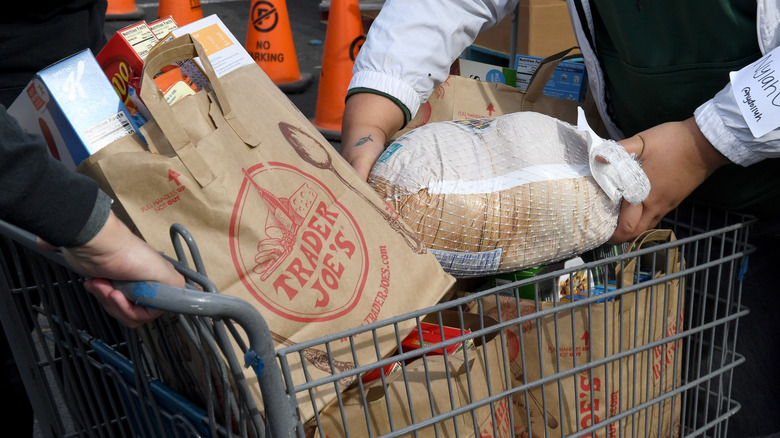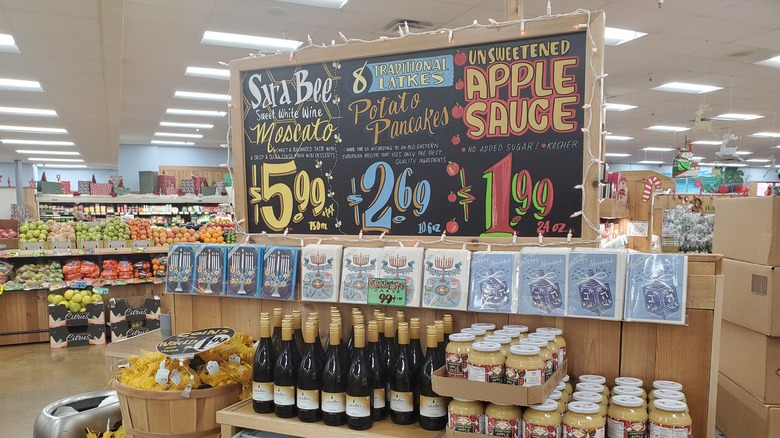Trader Joe: The Real Man Behind The Grocery Empire
The man, the myth, and the face of a grocery chain known for its affordable prices, global products, and a bell that rings across aisles was, in fact, just your average Joe. No, seriously. Trader Joe's was founded by a man named Joe Coulombe who had a very specific vision for his namesake store.
Before opening Trader Joe's, Coulombe owned a chain of convenience shops called Pronto Markets. These market stores had stiff competition with 7-Eleven in the 1960s and were eventually on the verge of bankruptcy until Coulombe was inspired to pursue a new business venture.
Much like the bargain of its popular individually sold bananas, Trader Joe's began because of another steeply discounted grocery item: a carton of extra large eggs. In Coulombe's memoir, "Becoming Trader Joe: How I Did Business My Way and Still Beat the Big Guys," he recounts how an egg supplier with too many extra large eggs came into a Pronto Market with a business proposition, and he took him up on it.
How Joe Coulombe started Trader Joe's
The egg supplier, hoping to get rid of his surplus before they went to waste, offered to sell them to Joe Coulombe for the same price as large-sized eggs. This allowed Pronto Markets to sell the eggs at a significant discount and undercut the competition. The sales kept Pronto Markets afloat and provided Coulombe with the tools he needed to open the first Trader Joe's in 1967 in California.
In various interviews with media outlets, Coulombe was clear about who Trader Joe's was aimed at — and why. The New York Times reported Coulombe noticed higher education in the U.S. was rising and, at the same time, Boeing was designing a new plane that would likely lead to more international travel and interest in global flavors. Coulombe connected the ideas and came to the conclusion that Trader Joe's would stand out from other grocers by providing affordable and rare finds to "overeducated and underpaid people ... all the classical musicians, museum curators, journalists."
The original Joe tacked on the word "Trader" to the name of the grocery store to give the worldly vibe he envisioned, CNN reported. The name was further inspired by a Tiki Bar restaurant called Trader Vic's. When the first Trader Joe's opened, it was decorated with fish nets and marine artifacts, and employees donned Hawaiian shirts and Bermuda shorts all to evoke thoughts of "South Seas" adventures.
Joe's legacy lives on
Over time, the Trader Joe's motif changed and the California-based chain went through evolutions to turn it into the thriving bargain destination it is today. Many of those changes were business moves made by Joe Coulombe himself.
Take, for example, Trader Joes' strategy behind offering private label items. Coulombe had already successfully captured the attention of wine connoisseurs by finding a way to offer a wide selection of French wines at a discount price; he then reasoned that those same customers were part of the rising "health" foods trend in the 1970s. So, Trader Joe's began offering a private label granola, which then expanded to freshly-squeezed orange juice, vitamins, nuts, etc.
Once again zeroing on the "educated" but "underpaid" customer that Coulombe always had in mind, Trader Joe's eliminated many household cleaning items from its inventory in favor of focusing on food and drink only. The brand also changed its private label names to better appeal to this ideal customer; Brandenburg Brownies and Sir Issac Newtons are two products designed to attract that educated shopper.
Although Coulombe did end up selling Trader Joe's in 1979 to Aldi Nord, owners of Aldi stores in the U.S., he held tight to the reigns of his business even after the sale. Coulombe stayed on as CEO of Trader Joe's for a decade until retiring in 1988. Trader Joe himself died in 2020, but his grocery chain lives on under the Aldi umbrella and continues to wow customers with a taste for broadening their palates while adhering to their budgets.


